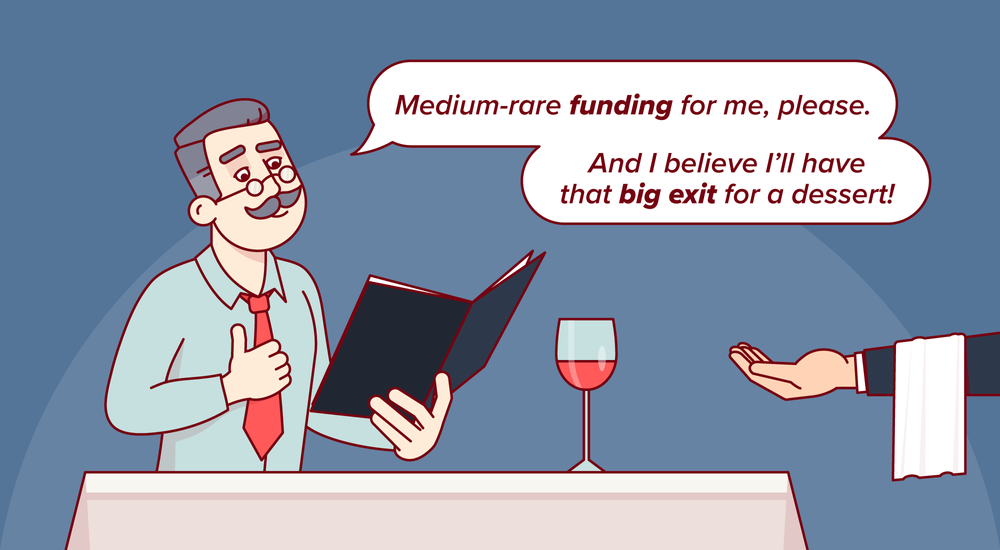Wil Schroter

Startup Founders are not entitled to success, yet we sure act like it.
When we're sitting in a room full of Founders or pouring through social media, we're inclined to think everyone is "killing it" but us. We hear of these meteoric rises, huge funding rounds, and big exits and invariably wonder when all that goodness will happen to us.
What we form is an "entitlement to success." We believe that because we see so much of it happening elsewhere, by virtue of that, it's only a matter of time until it happens to us.
What we miss when creating that entitlement is just how flawed the foundation of that premise is and what a house of cards we create with our own expectations.
"I Deserve to be Funded"
In the early days of our formation, when we're polishing our pitch deck and making the first round of pitches to investors, we're wondering who will write that first check. In our minds, because we came up with this idea 9 seconds ago, there must be someone out there who will fund it.
But where did we get that notion? Given that 100 startup Founders are looking for capital for every 1 check that will get written, why do we think we're better than the other 99?
Statistically, we're not likely to get funding (although I hope you do!) so we need to approach funding as a bonus, not an entitlement. The supply is simply so limited that no matter how much we think we need it (or deserve it), we can't possibly base our expectations on the fact that it will get done.
"I Deserve Success within 3 Years"
Once we do get launched, we then develop a new entitlement — early success. We read about companies "scaling overnight" and assume that must be the default condition of a startup's growth. It's not.
Yes, we do see startups grow exponentially overnight, but those are the breakout stars. Most startups will take 7-10 years to find out whether there is a real business there, and frankly, most of those years are going to suck!
It doesn't matter what our fellow Founders are doing. Every single journey is different, and the only ones we tend to hear about are those that are doing something unusual. No one wants to read a story of a startup that took 12 years to get to profitability, so our purview is wildly distorted by the outliers.
"I Deserve an Exit"
The only thing more distorted in the media and gossip circles than short-term success is big-time exits. If you spend as much time in Founders Groups as I do, you'd think someone exits every week. Yet once again, that's because you only hear about the story at the end.
No one is on the cover of a magazine for "Steadily Building a Company to Profitability over 10 Years." That's super boring! So instead we're treated to what feels like a dizzying number of exits and great outcomes from all kinds of startups.
We miss two important factors. First, the Founder or team who may have enjoyed that exit may have lived through numerous soul-crushing failures before they hit paydirt. Second, we typically don't hear about the 30-50% of startups who failed altogether (often part of the resume of those who hit paydirt, like me).
In each case, our entitlements stem from a totally unrealistic view of how startups actually work and the probabilities of our world. I sincerely hope that all of your entitlements come true, but for the sake of reality, please know that you're actually not entitled to any of them — none of us are.
In Case You Missed It
I Can't Have That — And That's OK (podcast) Starting a business involves a series of unique conditions, the three basic levels of ambition, and the uncertainty of the returns a Founder has to consider. So... what is the cost of ambition and how is it achieved?
What Are the Most Important Skills a New Founder Needs? Most Founders have a "certain set of skills" that apply to one aspect of their startup. Unfortunately, we sorta need to be a jack of all trades because we're often the only person doing all the work! But what are the most important?
The Emotional Cost of Being a Founder When we talk about building startups, we talk about lots of costs: Staffing costs, the cost of capital, cost per acquisition, and cost of opportunity. But we never talk about the biggest cost – the emotional cost.
Find this article helpful?
This is just a small sample! Register to unlock our in-depth courses, hundreds of video courses, and a library of playbooks and articles to grow your startup fast. Let us Let us show you!
Submission confirms agreement to our Terms of Service and Privacy Policy.
Already a member? Login
No comments yet.
Start a Membership to join the discussion.
Already a member? Login
